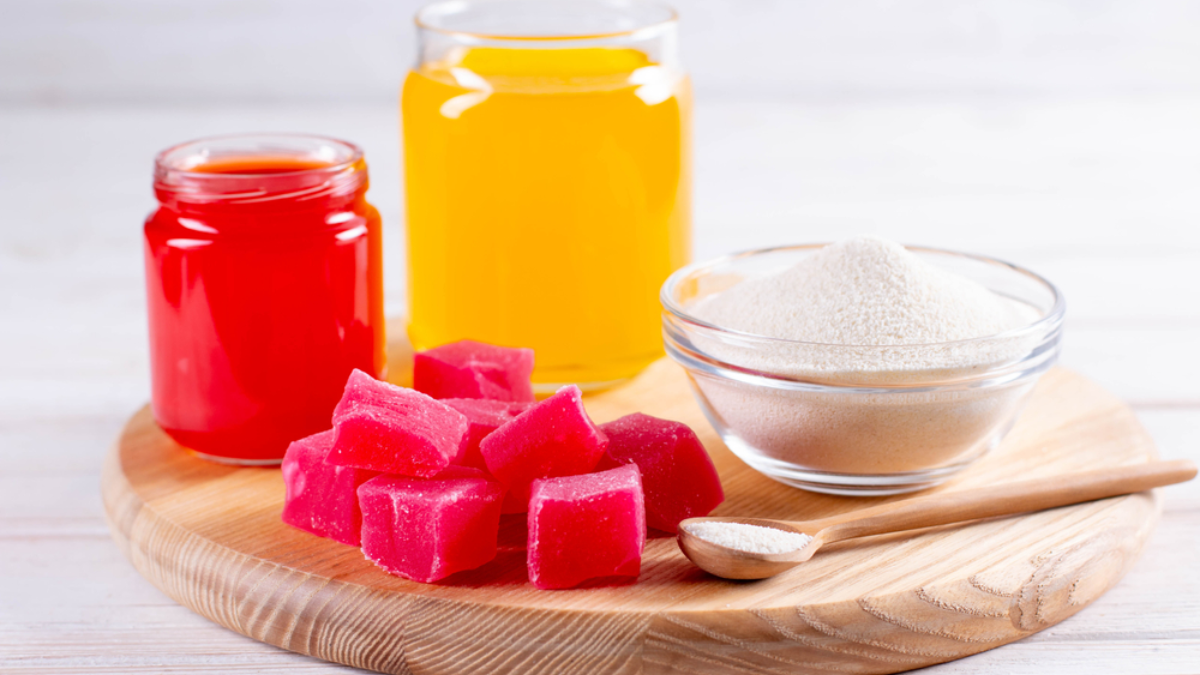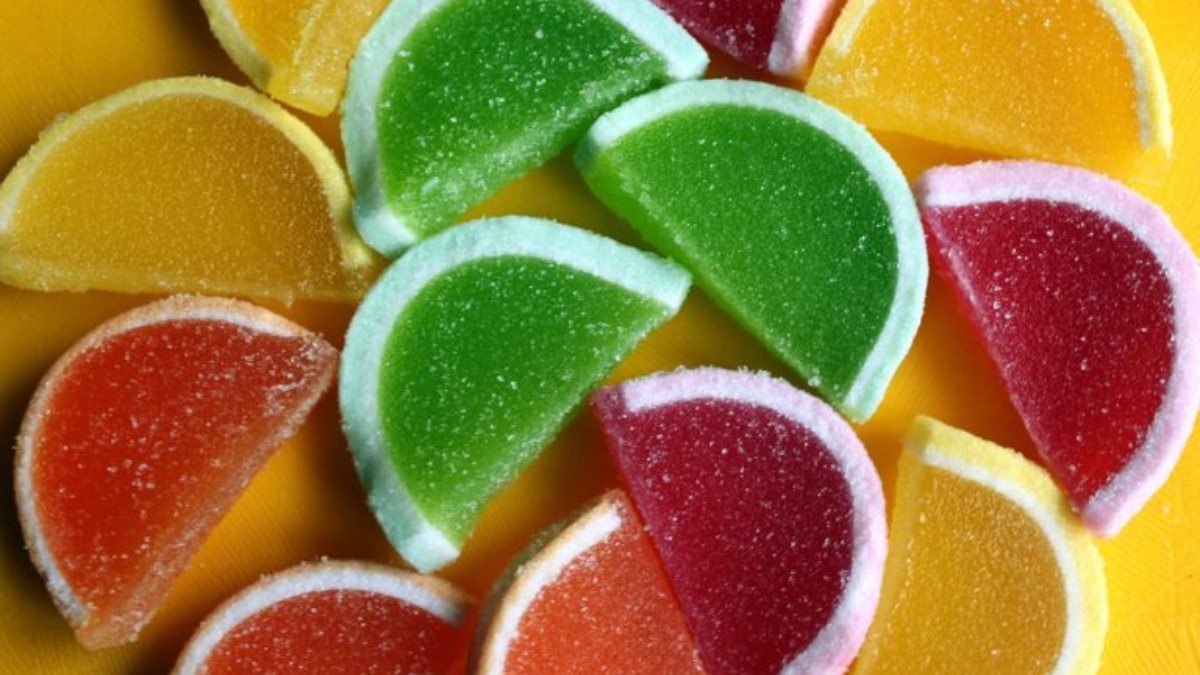The most prevalent protein in your body is collagen, and Gelatin is just cooked collagen. They consequently share a variety of traits and advantages. Their functions and applications, however, differ greatly. As a result, depending on your demands, you might have to choose one over the other, and they cannot necessarily be utilized interchangeably. Gelatin and collagen peptides are not the same. Both proteins are composed of amino acids, but collagen peptides’ amino chains have been broken down into more manageable fragments through a particular hydrolysis procedure.
In recent years, collagen and Gelatin have emerged as two of the health industry’s most popular supplements, particularly among individuals who adhere to a Paleo or ancestral diet that emphasizes foods like bone broth. They both have a long list of health advantages and may be utilized in various recipes, from soups to desserts.
What is Collagen?
The most prevalent protein in the human body, collagen, is present in the tendons, muscles, skin, and bones. Within the body, collagen creates a scaffold that gives it strength and structure. It is a vital part of connective tissue and is necessary for binding the body’s cells together. Additionally, it makes the skin more elastic and strong.
Endogenous collagen is organic collagen produced by the body. Synthetic collagen is exogenous. It originates from an external source, such as supplements. Endogenous collagen serves a variety of essential purposes. Depletion and breakdown are related to several health issues, including scurvy. People use exogenous collagen for cosmetic objectives, such as enhancing skin suppleness. Doctors in wound-healing procedures also use it.
What is Gelatin?
Soups, broths, sauces, gummy sweets, marshmallows, cosmetics, and pharmaceuticals frequently contain Gelatin. This popular thickening and the gelling ingredient is an animal-based substance with significant protein content. Gelatin is made by processing animals’ bones, cartilage, and skin. For instance, they might use fish or cow bodies.
Collagen, a fibrous protein that binds muscles, bones, and skin, is removed during the process and transformed into Gelatin, an unflavored, white substance that resembles jelly. Gelatin is neither vegan nor vegetarian. It is derived from the tissue of processed animals. However, there are plenty of vegetarian and vegan gelatin alternatives in some places. Gelatin is devoid of gluten. However, it can also be found in some items that contain it, such as soups and desserts.
How are Collagen and Gelatin Different?
Since Gelatin is made from collagen and proteins and contains the same amino acids, their overall health benefits are comparable, but they are used for different things.
The Digestibility
Given their low molecular weights and potential benefits for digestive health, Gelatin and hydrolyzed collagen may be easier for your body to absorb. In other words, because Gelatin has already been somewhat “broken down,” some people may find that they can digest it more readily.
Because they frequently also contain smaller, simpler-to-process particles, hydrolyzed collagen supplements are comparable to Gelatin.
Collagen is hydrolyzed to break it down similarly to how Gelatin is broken down, increasing its bioavailability. When collagen peptides are “completely hydrolyzed,” they dissolve in liquids of any temperature, whether hot or cold and don’t have a strong flavor or odor.
Used and Cooked
While collagen can be dissolved in various liquids at various temperatures, Gelatin can only be dissolved in hot water. When combined with water, Gelatin creates a gel-like substance, while collagen does not. Gelatin may have additional useful applications in cookeries, such as creating your jellies or thickening sauces.
Other Differences
Here are some other differences between Gelatin and collagen:
- Collagen has a triple helix of three chains with more than 1,000 amino acids in its native state.
- On the other hand, Gelatin is a degraded type of collagen that has undergone partial hydrolyzation or breakdown, making its amino acid chains shorter.
- As a result, Gelatin is more easily absorbed than pure collagen. Collagen peptides, an entirely hydrolyzed form of collagen used in most collagen supplements, are more easily digestible than Gelatin.
- Collagen peptides also disintegrate in both hot and cold water. Most types of Gelatin, in contrast, only dissolve in hot water.
- Collagen peptides cannot gel, but Gelatin has this ability and can create a gel that thickens when chilled. They cannot be used interchangeably because of this.
- Both powder and granulated supplements for collagen and Gelatin are available. Gelatin is also available as sheets.
What are the Health Benefits of Gelatin and Collagen?
The cosmetic and pharmaceutical sectors frequently use collagen and Gelatin because of their favorable effects on skin and joint health:
May Help Reduce Signs of Skin Aging
The indications of aging skin, such as dryness, scaling, and a loss of suppleness brought on by a decrease in the collagen composition of your skin, may be improved by collagen and Gelatin. Consuming collagen and collagen peptides, a degraded form of collagen, has been shown to increase skin collagen production and provide anti-aging effects.
For instance, after 8 and 12 weeks, two human trials in which subjects consumed 10 grams of an oral collagen supplement daily discovered a 28% improvement in skin hydration and a 31% reduction in collagen fragmentation, a sign of collagen quality degradation.
Similarly, consuming fish-derived Gelatin increased collagen density by 22% and skin thickness by 18% in a 12-month animal study. Additionally, research suggests that collagen may raise hyaluronic acid levels, another crucial element of skin structure, suggesting a potential protective impact against ultraviolet-B-induced skin damage.
May Improve Joint Health
Osteoarthritis, a degenerative joint disease that can be painful and incapacitating, and exercise-induced joint wear may be treated with collagen and gelatin supplements. According to research, these proteins may enhance joint health by building up cartilage after consumption, which would lessen pain and stiffness.
One study found that taking 2 grams of a gelatin supplement daily significantly improved pain and physical activity levels compared to the control group in an 80-person study that lasted 70 days. Similarly, 94 athletes in a 24-week trial who took a daily 10-gram collagen supplement experienced significant reductions in joint discomfort, stiffness, and inflammation compared to those in the control group.
Other Potential Benefits
Collagen and Gelatin have a few more health benefits in common, including:
- Antioxidant activity. Both collagen and Gelatin possess antioxidant capacities and fight the negative effects that free radicals can have on aging and overall health.
- They improved gut health. Collagen and Gelatin may improve the gut’s lining. Damage to the gut lining can otherwise lead to leaky gut syndrome and other autoimmune conditions.
- Improved bone health. Supplementing with degraded collagen, such as Gelatin, may increase bone mineral density and bone formation while reducing bone degradation.
How to Choose High-Quality Gelatin and Collagen?
The market has been overrun with new goods due to the popularity boom for both Gelatin and collagen. The following guidelines will help you choose a gelatin or collagen product because there are several low-quality options available:
- Choose Gelatin and collagen from grass-fed, pasture-raised animals only
- Make sure the animals were never given GMO feed, hormones, or antibiotics
- Avoid options with additives, preservatives, or other unnecessary ingredients
I often use both collagen and Gelatin. They affect detoxification support, good hair, skin, and nails, strong joints and bones, and gut health. Because of this, the goods must be exceedingly high quality. And that’s why I choose to create my own!
How to Add Collagen and Gelatin to My Diet?
Here are the directions to add collagen and Gelatin to add in your diet:
Breakfast in a Mug
Short on time? Don’t want a big breakfast? Try this breakfast in a mug.
- Organic black coffee
- 1-2 scoops of Balanced Docs Gelatin
- 2 tsp of organic extra virgin coconut oil
- 1/3 C unsweetened almond/coconut milk
- Dash of cinnamon
- Vanilla extract or stevia drops to taste
Fight Food Waste
After preparing a roast or other meat dish, keep the fluids at the bottom (especially if it contains a bone or joint). Use it again as a soup foundation to enhance the flavor of sautéed vegetables, or freeze it for use. Gelatin and other nutrients that can strengthen joints, hair, skin, and nails are abundant in the beef “jello” that forms when it is cold.
Better Baked Goods
Add a scoop or two of collagen peptides to your next batch of baked goods. The powder is flavorless and adds a punch of protein to offset the sugar rush.
No-Bake Energy Bites
Ingredients
- 1/3 C honey
- 1/4 C pumpkin
- 1/4 C creamy nut butter (peanut or almond)
- 2 C old-fashioned oats
- 1/4 C ground flaxseeds
- 1 tsp pumpkin pie spice
- Two scoops of vanilla flavor vanilla peptides.
Directions
- Combine all ingredients in a large bowl, and chill the batter in the fridge for 30 mins.
- Then roll into bite-size balls and place in the fridge for 30 mins to set.
Which One should you Choose?
Collagen and Gelatin are highly bioavailable when consumed orally, so your digestive system can easily absorb them. Their use collagen is used as a simple-to-digest nutritional supplement. It won’t affect the consistency of soups or sauces when added to coffee or tea, blended into a smoothie, or any of the beverages above. Therefore, choosing collagen or Gelatin ultimately depends on what they are.
On the other hand, Gelatin is favored because of its ability to gel and its numerous culinary uses. It can be used to thicken sauces and salads and produce homemade jellies and candies. However, sticking to collagen supplements may provide the greatest rewards if you want to improve your protein intake.
This is mostly because the labels on collagen supplements show you how much you’re taking, making it simple for you to boost your consumption, whereas utilizing Gelatin exclusively in recipes may result in you consuming considerably less of it.
Conclusion
The most prevalent protein in your body is collagen, and Gelatin is a degraded version of collagen. As a result, their nutritional compositions are nearly identical, and both may enhance the health of bones, joints, skin, and other body organs. However, they are utilized for various purposes due to variances in their chemical composition.
If you’re looking for a dietary supplement, collagen might be a better choice. Conversely, Gelatin is fantastic when making sweets and other foods that call for a thicker, gelatinous texture. They both have a long list of health advantages and may be utilized in various recipes, from soups to desserts. Despite the similarities, many people are confused about what characteristics set collagen apart from Gelatin and which is the superior choice.


